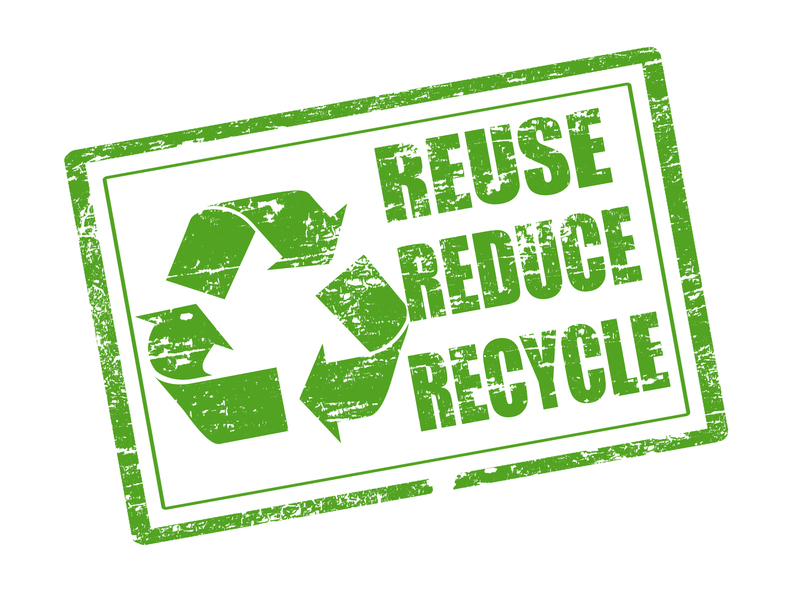Empowering Employees to Elevate Workplace Recycling
Workplace recycling goes beyond setting up bins and sending out emails--it thrives when employees are empowered, engaged, and inspired. Organizations around the globe are realizing that the best way to raise the bar on environmental action is by putting their people at the center of their recycling programs.
Why Empowerment is Key to Workplace Recycling Success
Recycling at work shouldn't be just a policy--it should become part of your work culture. An empowered staff is critical because they are the drivers of your everyday recycling efforts. When team members feel responsible for and connected to environmental goals, workplaces witness a real shift in behavior and outcomes.
- Ownership: Employees are more likely to participate correctly when they feel they have a voice in shaping recycling initiatives.
- Motivation: Engaged employees become advocates, encouraging their peers to also recycle and reduce waste.
- Innovation: Employees bring fresh ideas to improve existing recycling processes--potentially leading to reduced costs and environmental impact.
The transformation from passive compliance to active participation is what truly elevates workplace recycling programs.

Understanding the Current State of Workplace Recycling
Before you can empower anyone, it's vital to grasp how your organization currently handles recycling. This could include auditing bins, surveying staff, and tracking waste diversion rates. Here are common barriers employees may face:
- Lack of awareness about what materials are recyclable
- Confusion due to unclear signage or inconsistent recycling practices
- The perception that recycling isn't valued by leadership
- Too few or inconveniently placed recycling stations
By identifying and addressing these pain points, organizations can lay the groundwork for a sustainable recycling culture.
Key Strategies to Empower Employees for Better Recycling
1. Educate and Communicate Frequently
Education is the foundation of any successful recycling program. Interactive training sessions, digital resources, and regular updates equip employees with the knowledge they need to sort waste properly.
- Host lunch-and-learns or workshops led by sustainability professionals.
- Create easy-to-read guides and posters that clarify what goes in each bin.
- Send out monthly newsletters that share progress, tips, and success stories from team members.
Continual communication--both top-down and peer-to-peer--keeps recycling at the front of mind and helps reinforce positive behaviors.
2. Involve Employees in Program Design and Feedback
One surefire way to empower your staff is by inviting their input. Employee engagement can happen through surveys, suggestion boxes, or dedicated green teams. When staff participate in developing your recycling initiatives, their buy-in increases, and the program becomes more effective.
- Form a sustainability committee tasked with overseeing the recycling initiative.
- Schedule regular feedback sessions for sharing ideas and troubleshooting issues.
- Offer opportunities for employees to lead or co-lead recycling projects.
3. Make Recycling Easy and Accessible
Convenience is critical. Consider whether your office recycling bins are in high-traffic, visible areas. If recycling seems harder than simply throwing away trash, most people will take the easy route.
- Place bins in kitchens, near printers, break rooms, and common areas.
- Use clear, color-coded containers and signage.
- Remove or reduce the number of general waste bins to encourage recycling.
The path of least resistance should lead to the recycling bin, not the landfill!
4. Recognize and Reward Positive Actions
Recognition goes a long way in cementing new habits and fostering a recycling culture. Consider simple, creative ways to celebrate individuals or teams that demonstrate exceptional commitment to workplace recycling.
- Offer monthly "Green Champion" awards for outstanding contributions.
- Share shout-outs in company meetings or internal communications.
- Host friendly competitions between departments or locations.
5. Leverage Technology for Smarter Recycling
Digital tools can automate reminders, track recycling rates, and provide instant feedback to employees. Some offices use smart bins that track contamination or offer visual cues to aid sorting. Others provide sustainability dashboards that show collective progress over time.
Data-driven tools can:
- Identify trends and areas for improvement in recycling habits.
- Inform targeted training or communications.
- Motivate staff by visualizing their positive impact.
6. Lead by Example at Every Level
Leadership involvement is crucial. When managers and executives visibly support recycling--by using bins themselves, speaking about sustainability, and integrating recycling achievements into business goals--employees naturally follow suit.
- Make sustainability a value in team meetings.
- Encourage leaders to participate in clean-up or recycling events.
- Hold leadership accountable for department-level recycling results.
Overcoming Common Challenges in Elevating Workplace Recycling
Even the best-laid plans can face obstacles. The key to elevating workplace recycling is to anticipate and swiftly address these challenges:
- Lack of Engagement: Combat this by personalizing messages, sharing relatable success stories, and showing employees how their actions matter.
- Contamination: Use signs with images and provide hands-on sorting demos to reduce confusion.
- Complacency Over Time: Keep things fresh with rotating initiatives, such as themed awareness months or new incentives.
Additionally, ensure your policies adapt as recycling technology and municipal guidelines evolve.
Building a Lasting Culture of Recycling Empowerment
Instilling recycling as a core workplace value requires continuous involvement. The organizations that succeed are those who treat recycling not as a one-off project, but as an integral piece of their environmental, social, and governance (ESG) strategy.
Integrate Recycling Goals with Larger Sustainability Objectives
- Align recycling goals with climate commitments, such as carbon neutrality.
- Connect recycling efforts to corporate social responsibility (CSR) reporting.
- Involve employees in broader green initiatives, from composting to energy saving.
When employees see how their recycling supports bigger-picture strategies, they become stakeholders in your wider sustainability mission.
Empower through Continuous Learning and Innovation
- Keep up to date with recycling regulations and updates.
- Invest in staff development--sponsor attendance at workshops and webinars focused on waste reduction.
- Encourage ongoing feedback and pilot programs for new recycling streams.
Case Studies: Real-World Examples of Employee-Empowered Recycling
Tech Startup Drives Culture Change with Green Teams
A San Francisco-based startup formed an internal green team tasked with elevating office recycling. Team members led educational sessions and reworked bin placement based on staff feedback. In six months, the company reduced landfill waste by 40% and saw near-universal participation in recycling.
Healthcare Facility Cuts Contamination Through Peer Education
After finding high contamination rates in recycling, a regional hospital assigned floor captains to answer coworkers' recycling questions. These peer mentors held sorting demos and created a buddy system for new hires. The result? Contamination dropped by 60% in the first year.
Corporation Rewards Employees for Creative Waste Reduction
A multinational company implemented an annual challenge rewarding employees for innovative recycling or reuse ideas. Winning suggestions--such as a reusable packaging system for internal shipments--were piloted and scaled, directly influencing the company's sustainability footprint.

Measuring the Impact of Employee Empowerment in Workplace Recycling
How do you know if your strategy to empower staff is working? Metrics matter. Track not just diversion rates, but also:
- Employee participation in recycling programs and challenges
- Number of new ideas submitted or implemented
- Reductions in contamination or general waste volume
- Engagement levels measured through surveys or focus groups
- Cost savings from reduced waste disposal and resource use
Celebrate incremental wins and transparently communicate results as part of your ongoing empowerment strategy.
The Future of Workplace Recycling: Sustainability through Empowerment
Workplace recycling programs reach their full potential only when employees are engaged and empowered to lead the charge. By focusing on education, accessibility, recognition, technology, and leadership, organizations can foster a more resilient--and far-reaching--recycling culture.
- Prioritize ongoing dialogue and rewards to sustain enthusiasm.
- Adapt to new waste streams and local guidelines to remain effective.
- Always keep employees at the heart of the effort--ownership leads to impact.
If your goal is to elevate workplace recycling and make a real environmental difference, start by empowering your people. Their ideas, energy, and commitment will drive the change your organization--and planet--deserve.
Take Action: Begin Empowering Workplace Recycling Today
Ready to jump-start your recycling program? Conduct a needs assessment, invite employee input, and celebrate every achievement. Empowerment is not a one-time activity--it's the continuous act of trusting and supporting your team to make a difference.
Empowering employees to elevate workplace recycling is the most powerful way to create lasting, positive change for your business and the environment. Start today, and watch your organization thrive as a green leader.